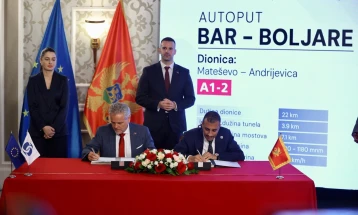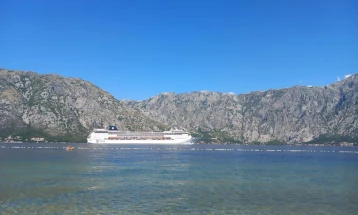GDP reduced for about 44 percents in the last ten years
- GDP reduced for about 44 percents in the last ten years
- Post By daniloc
- 11:37, 15 februar, 2002

Montenegrin domestic product, which is currently estimated on 700 million USD, is half of the domestic product of the period before sanctions of international community, at the beginning of 1990s, when it had been 1.6 billion USD. This information has been stated by the network of non-governmental organizations, #Akcija#.
Estimations and success of present reforms in Montenegro were published in a document which is a part of the project Reforms for healthy society that this network has already begun to implement. It also contains the projections of necessary systemic changes.
"The loss of 5 billion USD in the gross domestic product has been created in the period 1990 - 1998; average wages have been reduced for more than four times, unemployment has been raised to more than 40 percents, while domestic product per capita is three times less," states the document.
Gross domestic product is the total value of national production of goods and services.
Authors of the text state that Montenegro has also had huge losses in the field of marine trade as well.
"Before the sanctions were introduced, this field had been very profitable and it brought about 20 million USD per year, while at the end of 1998, merchant-fleet had one-fifth of the ships it had had before, and losses of more than 50 million USD," states the document.
Montenegrin tourism as the main export branch, with annual income that had been more than 150 million USD, lost almost 1 billion USD in the last eight years. In the years before disintegration of SFR Yugoslavia, Montenegro exported goods and services worth about 600 million USD, while the import had been somewhat higher, and it had been about 700 million USD.
In this way, Montenegro, as an undeveloped state, managed to maintain the foreign trade deficit of almost 7 percents. Since 1982, Montenegro has had surplus in exchange with foreign states of more than 100 million USD, as well as constant deficit in business with other republics of the former SFRY.
It has been stated that the disintegration of Yugoslavia induced the break of business communication of Montenegro with four former Yugoslav republics: Croatia, Slovenia, Bosnia and Herzegovina and Macedonia, and thus has had huge losses, particularly in tourism and marine economy.
Since 1998, Montenegro has been constantly assisted by international community, without which the revitalisation of national economy would not be possible. Without it, no significant moves in the field of democracy and structural reforms would have been realized, either.
During 1999 and 2000, Montenegro received the greatest aid per capita, that the US government has ever given to a foreign state, apart from Israel.
From 1998 till 2001, Montenegro received about 800 million DEM of international aid, which enabled stable functioning of the state authorities, servicing of budget deficits and financial support to projects, relevant for reforms.
This year, Montenegro would receive about 119 million DEM from European Union and the USA, including humanitarian aid.
After they presented these data, authors of the text concluded that effects of Montenegrin reforms in the last four years were not satisfactory, regardless of some negative political circumstances that disabled the development of reform process.
"The fact is that Montenegrin authorities implemented the policy of system changes without adequate competence and with obviously controversial results. No moves were made in the field of legal and economic reforms, excluding the monetary ones," states the Document.
With intensive support of international advisors and occasional cooperation with local non-governmental sector, the Government has indubitably prompted the reform of legislative and instigated creation of a new systemic ambient, states the Document of the network of non-governmental organizations #Akcija#.












